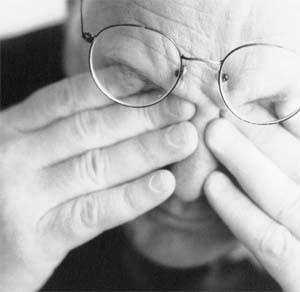Post-traumatic stress disorder therapy may also work through telephone
 Teleconferencing may help provide therapy for post-traumatic stress disorder, a Canadian researcher has suggested.
Teleconferencing may help provide therapy for post-traumatic stress disorder, a Canadian researcher has suggested.
17 post-traumatic stress victims in a rural area were made to undergo 16-25 sessions of tele-therapy, therapy via teleconferencing, with Montreal therapists by Stephane Guay of the University of Montreal.
A control group of PSTD patients received face-to-face therapy. Both groups had 75 percent to 80 percent of their members overcoming their chronic post-traumatic stress.
It was noted by Guay that patients in the tele-therapy group needed to be at a well-equipped hospital supervised by medical personnel.
Guay says in a statement, "It would be ethically indefensible for them to stay home. Post-traumatic stress therapies require that a patient relive certain traumatic events and should they become uncomfortable it is mandatory that someone be there to intervene."
While the same number of patients improved, patient comments favored tele-therapy, Guay further noted.
Guay says, "It seems patients appreciate a certain distance from their therapist." (With Inputs from Agencies)